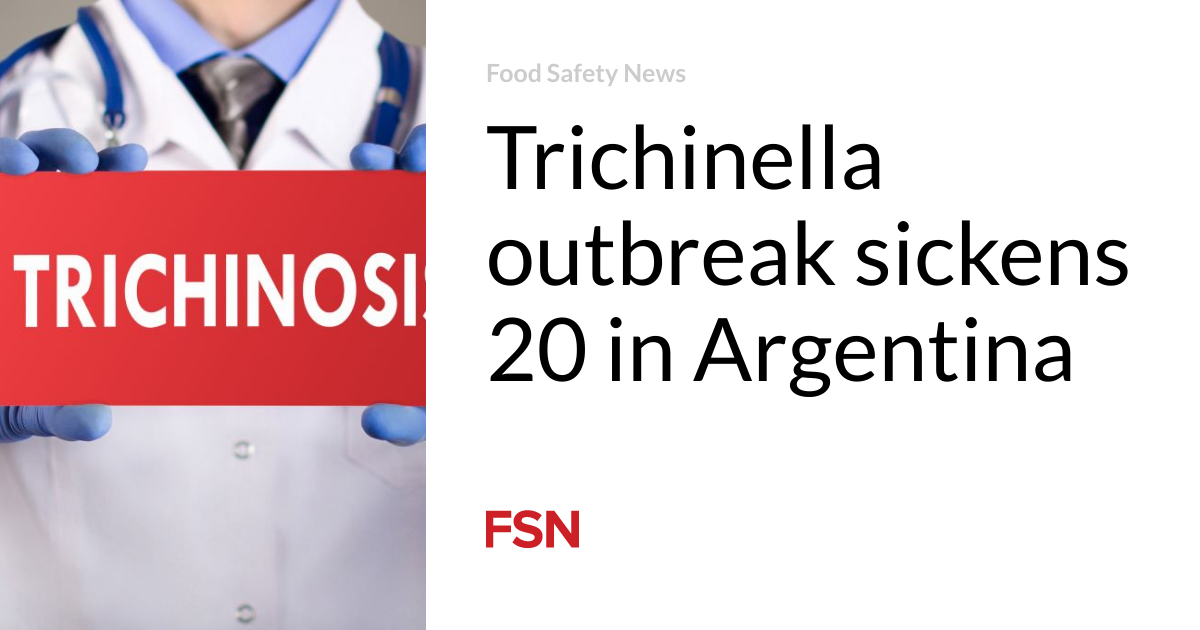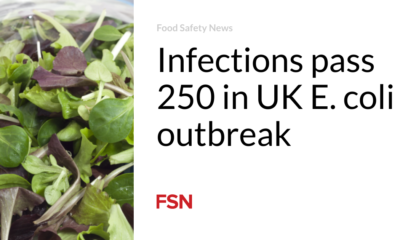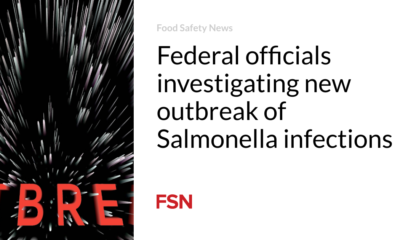Food
Trichinella outbreak sickens 20 people in Argentina

At least twenty people have been sickened by an outbreak of trichinosis in Argentina.
Health officials in Santa Fe province said sick people reported consuming chorizo seco, a type of dried sausage, from a local company.
In the city of Acebal, 26 potentially exposed people have been reported so far, of whom 20 developed symptoms.
The outbreak is being investigated and is linked to eating products with a suspected production date between April 24 and May 16 this year.
Product samples were taken and the Santa Fe Food Safety Agency (Assal) laboratory reported a positive sample for Trichinella spiralis.
Broader problem
Assal advised people not to consume products made from raw or undercooked pork prepared by the concerned outlet. Other advice included not purchasing unlabeled items or meat products on social media.
In 2023, health officials in Buenos Aires province reported 651 suspected cases and seven outbreaks. Up to mid-September, 433 suspected infections plus 387 confirmed and probable cases had been recorded across the country in 2023.
Trichinosis is transmitted by eating raw or undercooked pork contaminated with the parasite Trichinella.
The first symptoms of infection are nausea, diarrhea, vomiting, fatigue, fever and abdominal pain. Headache, fever, chills, coughing, swelling of the face and eyes, aching joints and muscle aches, itchy skin, diarrhea or constipation may follow. Patients may have difficulty coordinating movements and have heart and breathing problems.
Abdominal complaints may occur one to two days after infection. Further symptoms usually begin two to eight weeks after eating contaminated meat. Freezing, brining or salting, drying, smoking or microwaving meat should not kill the organism. The best way to prevent trichinosis is to cook meat to a temperature of 71 degrees C (160 degrees F).
Official audit findings
Meanwhile, the National Agency for Health and Agri-Food Quality (Senasa) has carried out a number of recent inspections targeting agricultural and meat products.
In one operation, 2,350 kilos of fruit was seized that was undeclared and hidden alongside general merchandise. The problem was discovered at a checkpoint between Buenos Aires province and Río Negro. A total of 1,890 kilograms was donated that was suitable for consumption.
As part of other controls, 22 tonnes of products were detained in the Corrientes region due to a lack of documentation on their origin, posing a potential risk to public health. The products involved were lemons, passion fruit and ginger.
Senasa also seized products of animal and vegetable origin that had been transported from La Rioja without health documentation or transit permits. Items included pork, sausages, mortadella, salami and tangerines.
In Río Negro, 7,800 kilos of beef were seized after a truck initially bypassed Senasa officers and their instructions to stop. When the vehicle was stopped, inspectors noted problems with respecting the cold chain, the hygienic conditions necessary to ensure safety, and a lack of documentation.
Ultimately, inspectors found 4,580 pounds of meat hidden in a water tank. There was beef in the tank that was transported in a truck from Bahía Blanca to the province of Río Negro. The merchandise did not have the required sanitary conditions or the necessary documentation.
(To sign up for a free subscription to Food Safety News, Click here.)













